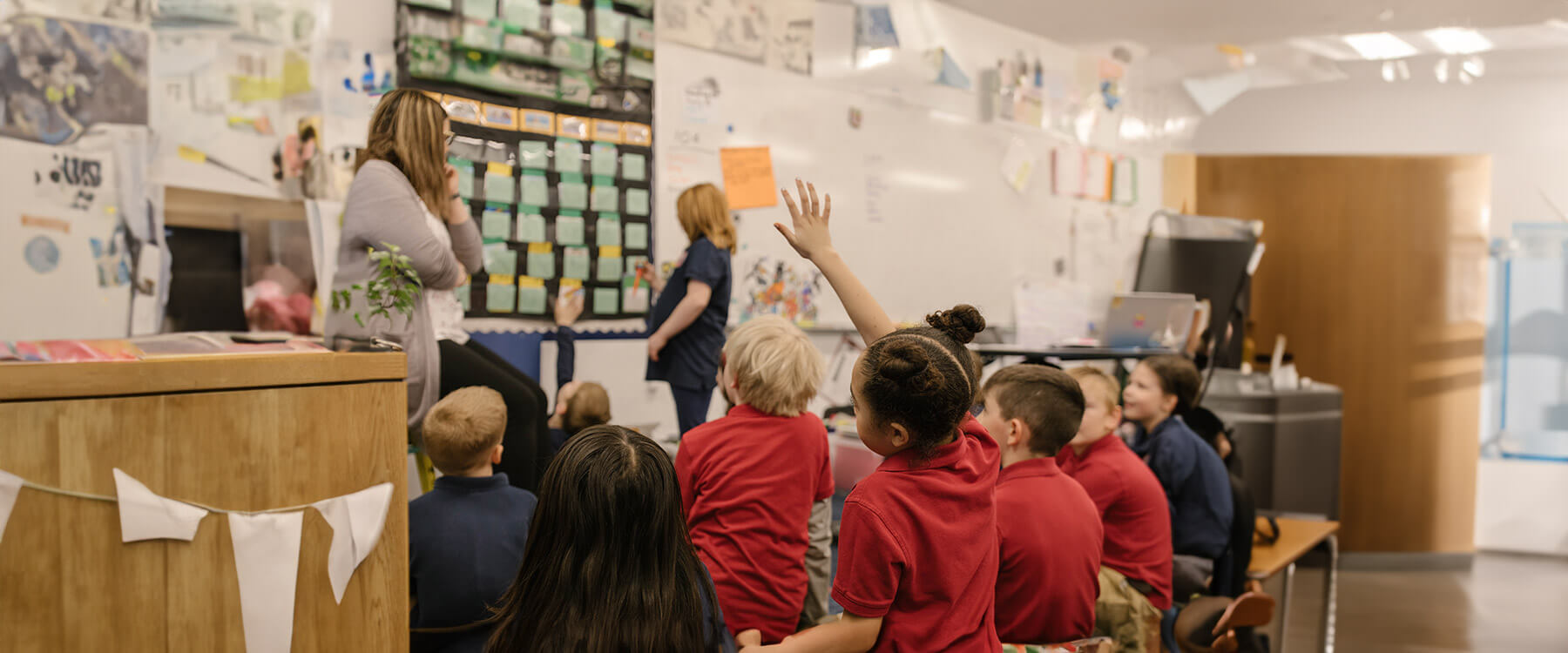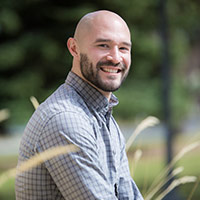Upcoming Gifted Education Institute
Experience institutes that will help you grow as a professional and learn to address contemporary issues in gifted education.
Summer 2026 Teaching for Learning Institute
- Dates: June 24-26, 2026
- Location: On campus
Whitworth University
300 W. Hawthorne Road
Spokane, WA 99251 - Time: 9 a.m.-4 p.m.
- Cost: $399* per person (includes lunch)
*School-based teams that register together will receive every sixth registration free; Whitworth University is a Washington state-approved clock hour provider.
Join us for three days of engaging sessions focused on ways we can use or adapt curriculum resources, identify strengths, develop talent, support learners with twice-exceptionalities, and differentiate instruction and support psychosocial skill development. Each day includes a keynote, breakout session, an in-depth multi-day strand, as well as opportunities to share your ideas and network with others around specific topics of interest.
More information coming soon!
Additional Information
Academic Credit
You may elect to receive one graduate-level credit from Whitworth University for an additional fee of $150. There will be course assignments for those receiving graduate-level credit, to be completed after the conference is over. This credit can be used to meet the elective requirement for the Washington State Gifted Education Specialty Endorsement offered at Whitworth. One graduate-level semester credit equals 15 Washington state-approved clock hours. Registration for credit will occur during the institute after an informational meeting, held on Thursday, June 25, at 4 p.m.
Clock Hours
Washington state-approved clock hours will be available for $3 per clock hour with a maximum of 15 clock hours. Contact gifted@whitworth.edu if you have questions. Information about clock hours will be provided during the conference.
Payment Information & Cancellation/Refund Policy
Payments with credit cards can be made via the online registration form. We also accept checks and purchase orders. Please email purchase orders to gifted@whitworth.edu or mail them to:
Whitworth University
Center for Gifted Education
300 W. Hawthorne Road
Spokane, WA 99251
All monies less $25 processing fee will be refunded if paid registrations are canceled by 5 p.m. PST on Friday, June 20, 2025. After June 20, no refund is provided. Contact the Center for Gifted Education at gifted@whitworth.edu or 509.777.3769 to cancel your registration and request a refund.
Hotel Accommodations
Need a place to stay? Hotels near campus, with discounts, can be found here.
Previous Featured Speakers
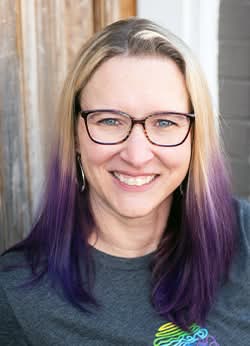 Emily Kircher-Morris, M.A., M.Ed., LPC.
Emily Kircher-Morris, M.A., M.Ed., LPC.
Emily Kircher-Morris, M.A., M.Ed., LPC, inspired by her own experiences as a neurodivergent person, is dedicated to destigmatizing neurodiversity and supporting neurodivergent people of all ages. She started her career in education and is now in private practice near St. Louis, Missouri as a licensed professional counselor, where she specializes in supporting neurodivergent kids and adults (and their families).
Emily hosts The Neurodiversity Podcast, which explores the psychological, educational, and social needs of neurodivergent people. She is the author of several books related to parenting and educating neurodivergent children and teens. Her most recent book, “Neurodiversity-Affirming Schools: Transforming Practices So All Students Feel Accepted and Supported” was released in January 2025.
She speaks at statewide, national, and international conferences and frequently provides virtual and in-person professional development to educators, mental health clinicians, and parents worldwide. Many of her presentations and workshops can also be found at the Neurodiversity University online learning platform.
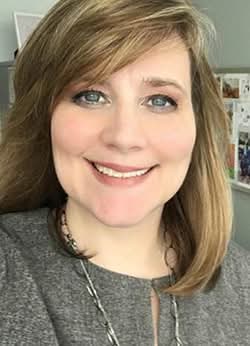 Kirsten Maloney
Kirsten Maloney
Kirsten Maloney is currently the K-12 senior manager of advanced academic programs in Fairfax County Public Schools in Northern Virginia. She has worked in gifted education for over 20 years in a variety of roles, including central office, elementary resource teacher, and as a classroom teacher in both gifted and general education classrooms in Virginia and Maryland. Kirsten served as past vice president of the Virginia Association for the Gifted, organizing professional learning for teachers throughout the state. In her current role, she works with K-12 leaders and teachers to implement a continuum of AAP services. In 2023, her work was recognized by NAGC with a Gifted Coordinator Award and by her district with an FCPS Excellence Award.
Kirsten teaches graduate level courses on gifted education topics and has presented at national, state and local conferences on the topics of talent development, leading for equity in gifted education and differentiating instruction for advanced learners. Kirsten earned her Ed.D. from UVA in Educational Leadership, researching "Leaders' Sensemaking and Sensegiving for Equity and Excellence in Title I Advanced Academic Programs." She holds a master's degree in educational psychology with an emphasis on gifted from the UVA, an Educational Leadership certification from the George Washington University, and National Board certification as a middle childhood generalist. Kirsten co-authored the book Young Scholars Model: A Comprehensive Approach to Developing Talent and Pursuing Equity in Gifted Education.
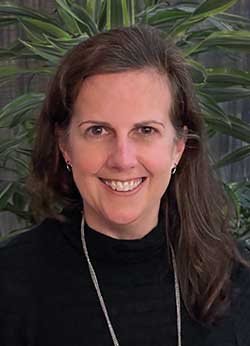 Catherine A. Little, Ph.D.
Catherine A. Little, Ph.D.
Catherine A. Little, Ph.D., is a professor in giftedness, creativity and talent development at the University of Connecticut. Her research interests include professional learning, differentiation of curriculum and instruction for advanced learners, and questioning practices. Recently, she has been project director for Project SPARK, Project LIFT and Project Focus, which are Javits-funded initiatives focused on working with schools and teachers to recognize and respond to advanced academic potential in the elementary grades, particularly in students from underserved populations. Catherine is currently serving as the president-elect of the board of directors of the National Association for Gifted Children.
Whitworth Faculty and Featured Washington Speakers
Jen Flo
Jen Flo, MAEd and MAT, is a dedicated educational leader with over 25 years of experience focused on transforming district cultures and expanding learning opportunities for all students. Currently serving as a regional administrator at Capital Region ESD 113 and adjunct faculty at Whitworth University's gifted education graduate program, she specializes in advanced learning, early career educator support and systems improvement. Flo has established herself as a recognized expert in gifted education; supporting educators in districts and presenting at state, national and international conferences. Her collaborative approach to educational improvement has fostered successful partnerships with multiple school districts and a statewide PLC for district coordinators, where she supports districts in designing and revising gifted services to meet the needs of advanced learners, sustainable mentoring systems, and provides school improvement supports. As an active member of several professional organizations, including serving in leadership roles with the Washington Association of Educators of the Talented and Gifted and serving on the OSPI Advisory for Highly Capable Programs, Flo continues to advocate for educational excellence, earning recognition through awards such as the WAETAG Dedication to Excellence honor and various teaching distinctions throughout her career.
Jody Hess
Jody Hess serves as program supervisor for highly capable at OSPI and is project director for Jacob K. Javits Project HiCapPLUS: Access and Equity online professional learning modules. A former paraprofessional, teacher, HiCap coordinator, principal and district administrator, Jody has experience using a variety of identification and service delivery models for advanced learners. She has particular interest in talent development strategies to help recognize and serve “harder to find” underserved students such as multilingual learners, students with disabilities and those affected by poverty. Jody was nominated by a former student and awarded the SDB Fellowship of the Johns Hopkins University Center for Talented Youth. She was proud to be recognized by WA Association of Educators of Talented and Gifted (WAETAG) for the Kari DeMarco Lifetime Achievement Award in 2023.
Reby Parsley, Ed.D.
Reby Parsley earned her doctoral degree in education leadership with an emphasis in gifted education from the University of Washington. Her dissertation evaluated the impact of elementary talent development models on academic growth and identification rates of minority students for gifted education services. Prior to earning her doctorate, she earned a master's of education from the University of Washington in curriculum and instruction and a bachelor's in elementary education from Saint Martin's University. Parsley has a national board certification in early and middle childhood literacy and holds a superintendent credential. She currently works as the gifted specialist in Washington state and as an adjunct professor at Whitworth University. In all, she has 14 years of classroom teaching experience, most being in self-contained and gifted cluster classrooms. She also serves as president of the Washington Association of Educators of the Talented and Gifted.
Tamra Stambaugh, Ph.D.
Tamra Stambaugh is a professor and the Margo Long Endowed Chair in Gifted Education at Whitworth University. Stambaugh is the co-author/editor of several articles, monographs, book chapters, and award-winning books and curriculum units including the Vanderbilt PTY Curriculum, the Jacob’s Ladder Reading Comprehension Program. Her research interests include curriculum and instructional interventions for promoting talent development and expertise as well as strategies and systems for identifying and serving students from low income and rural settings. Stambaugh serves on several boards including the Gifted Child Quarterly advisory board, the American Educational Research Association Gifted SIG executive committee, and the WAETAG board. She has also served on the National Association for Gifted Children board of directors as a member at large and as an officer in the role of treasurer. Prior to her role at Whitworth University, Stambaugh was the executive director of Programs for Talented Youth and an associate research professor at Vanderbilt University. She received her Ph.D. from the College of William & Mary. Prior to moving to higher education, Stambaugh was a HiCap teacher and coordinator of gifted programs at the local and regional state level. Stambaugh’s work is widely recognized nationally and internationally and is the recipient of national awards for leadership, scholarship and service in the field; she is an invited speaker for the United States Embassy Bureau of Educational and Cultural Affairs, U.S. Department of State Speaker’s Bureau and has been invited to consult or present in several countries including Australia, China, St. Croix and the United Arab Emirates.
Nick Castilleja
Nick Castilleja is a teacher on special assignment (TOSA) for highly capable education in Pasco, Wash. Drawing on a wide variety of teaching assignments and experiences, Nick advocates for dynamic, challenging and engaging curriculum and instruction for all students. He earned his master’s in gifted & talented education from Whitworth University in 2019 and recently completed a term serving as a board member at large for WAETAG. Nick specializes in delivering experiential professional learning sessions on tailoring engaging learning environments, differentiating instruction, Project-Based Learning, Depth and Complexity, as well as identifying and serving multilingual advanced/high potential learners.
Kathryn Picanco, Ed.D.
Kathryn Picanco, Ed.D. earned her bachelor of arts degree from Santa Clara University and Master of Education in elementary education and Doctor of Education in curriculum and instruction from Washington State University. She began her professional career as an elementary school teacher, later becoming a district differentiation specialist and coordinator of the gifted and talented education program. Kathryn joined the faculty in the School of Education at Whitworth University in 2006. She currently teaches in the undergraduate teacher preparation program and Graduate Studies in Education while also directing the M.Ed. in Montessori program. She received the Distinguished Leadership Award from the Washington Association of Educators of the Talented and Gifted in 2013. Kathryn’s research interests are in inquiry-based instruction, differentiation and Montessori education.
Kristi Stroyan
Kristi Stroyan has been in the field of gifted education since 2006. With a background in reading and literacy and a passion for gifted education, Kristi enjoys leading educators to deepen their understanding of gifted students and develop skills to target their unique needs. She is currently teaching language arts and social studies at a gifted school in Spokane, Wash. Kristi fosters an environment of intellectual curiosity and supports the holistic development of her students. Through her combined roles as an educator and presenter, Kristi is dedicated to empowering individuals to reach their full potential.
